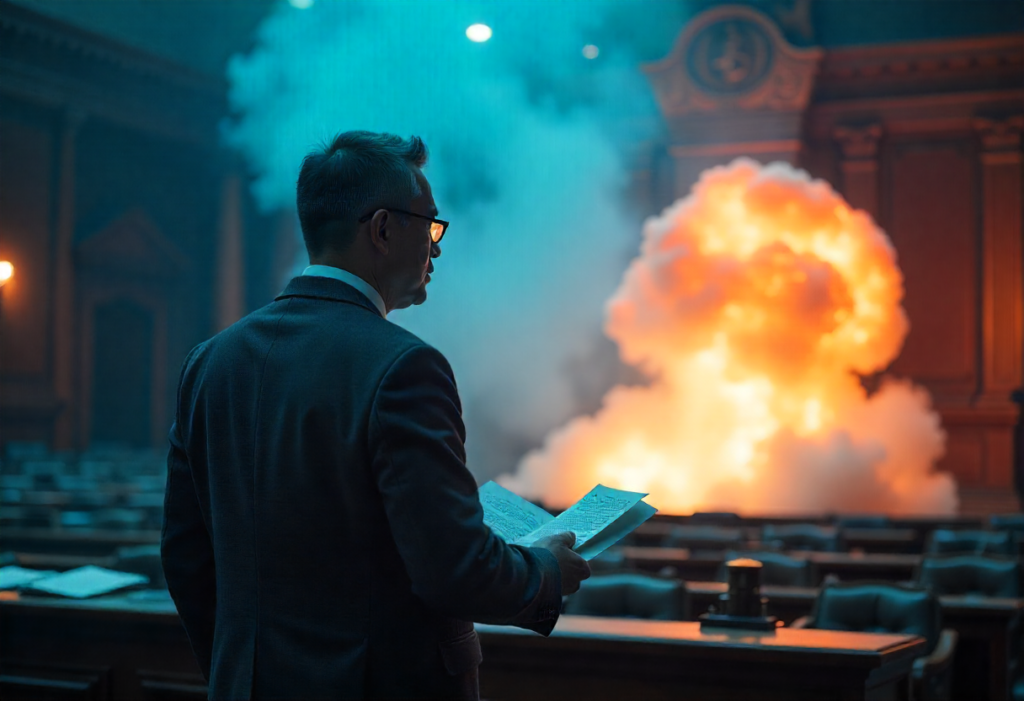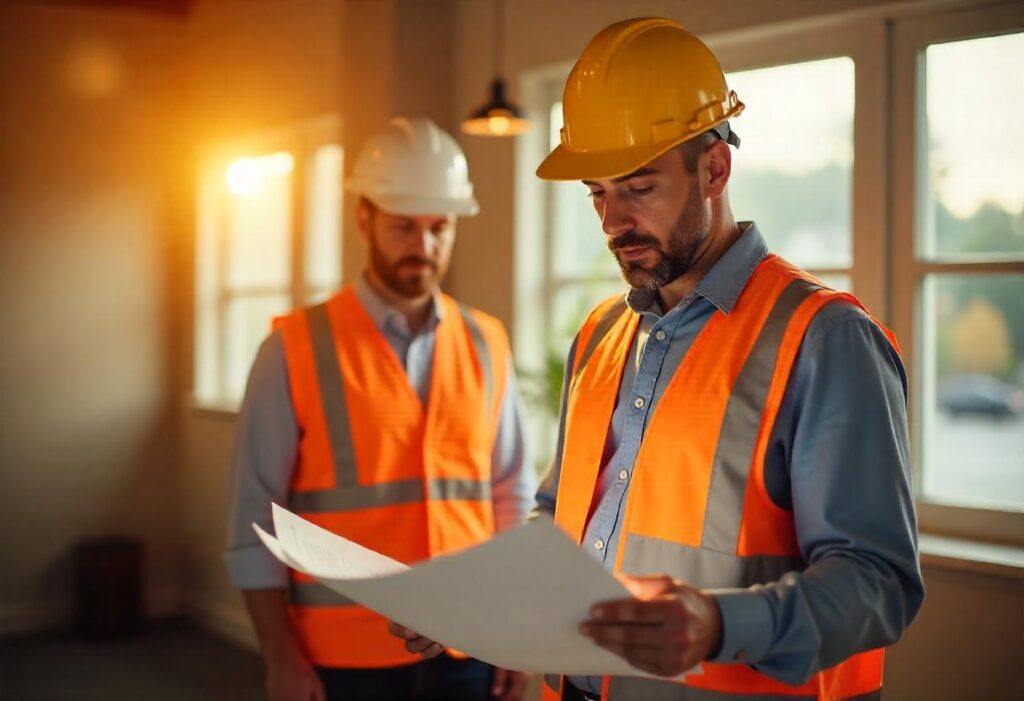
Consider consulting an explosion lawyer if you or someone you know has been affected by an explosion. They can guide you through the legal process and help you fight for the compensation you deserve.
Accidents involving explosions can result in severe injuries, fatalities, property damage, and harm to the environment. They can occur in a variety of settings, including areas with gas leaks, large and small factories, chemical plants, and oil refineries.
This article explains what an explosion lawyer does, why it’s crucial for victims to choose the right lawyer, and what results to expect during the case. It will also clarify the rights of victims involved in such incidents.
Why Explosion Cases Are Unique
Explosion incidents are complex and dangerous. Because they are not like ordinary injury situations, they also have serious legal implications.
1. High-Risk Environments
Explosions frequently occur in high-risk places, such as:
- Oil and gas refineries
- Chemical processing facilities
- Construction sites
- Residential areas (e.g., gas leaks, propane tank ruptures)
These locations include volatile compounds or high-pressure systems, raising the chances of catastrophic incidents.
2. Multiple Liable Parties
Several people are frequently held accountable for explosions, including:
- Facilities operators or employers
- Manufacturers of equipment
- Subcontractors or contractors
- Owners of real estate
- Regulatory organizations
Explosion lawyers are prepared to conduct the thorough investigation necessary to establish culpability.
3. Complex Regulatory Framework
Numerous federal and state laws apply to explosions, including:
- OSHA’s (Occupational Safety and Health Administration) guidelines
- Rules set out by the Environmental Protection Agency (EPA)
- State-specific safety regulations
To demonstrate carelessness or infractions, a lawyer must follow these guidelines.
4. Severe and Widespread Consequences
Explosions can result in:
- Catastrophic injuries (burns, traumatic brain injuries, amputations)
- Fatalities
- Environmental damage (air, water, or soil pollution)
- Property loss (homes, businesses, vehicles)
- Economic losses (business interruptions, lost income)
A qualified explosion lawyer can pursue full compensation for these damages.
Why You Need an Explosion Lawyer
Hiring an explosion lawyer is important for several reasons:
1. Specialized Knowledge
Explosion cases involve personal injury, product liability, environmental, and workplace safety laws. An explosion lawyer understands:
- OSHA regulations for workplace safety
- EPA standards for environmental protection
- Product liability laws for faulty equipment
- State-specific laws related to injuries
2. Maximizing Compensation
Victims often face costs such as:
- Medical bills (surgeries, rehabilitation, long-term care)
- Lost wages and future earning potential
- Pain and suffering
- Property damage
- Environmental cleanup costs
An explosion lawyer will ensure that all damages are included in your claim.
3. Handling Complex Cases
Explosion cases often include large companies or multiple defendants with substantial resources. An explosion lawyer will:
- Conduct thorough investigations
- Consult with experts (e.g., engineers, safety specialists)
- Litigate against well-resourced opponents
- Negotiating with Insurance Companies
Insurers may try to minimize payouts or deny claims. An explosion lawyer can counter these tactics, negotiate for fair compensation, or take the case to court if necessary.
5. Establishing Fault
Proving liability involves gathering evidence, including:
- Accident reports
- OSHA or state investigation documents
- Maintenance and safety records
- Expert testimony
An explosion lawyer collects and evaluates this evidence to build a strong case.

Common Causes of Explosions
Understanding the cause of an explosion helps identify the responsible party. Some common causes include:
1. Equipment Failures
- Defective equipment, pipelines, or pressure vessels
- Lack of proper maintenance or inspection
- Manufacturers’ flawed products
2. Human Error
- Insufficient training or supervision
- Negligence in following safety protocols
- Failure to adhere to maintenance schedules
3. Regulatory Violations
- Noncompliance with OSHA or EPA standards
- Ineffective safety audits
- Ignoring state or local regulations
4. External Factors
- Gas leaks in residences or businesses
- Natural disasters (e.g., earthquakes causing pipeline failures)
- Sabotage or vandalism
An explosion lawyer will investigate these factors to establish liability.
Types of Explosion Cases
An explosion lawyer can manage a variety of claims, including:
1. Personal Injury Claims
Injured victims (workers, residents, or visitors) can seek compensation for:
- Medical expenses
- Lost wages
- Pain and suffering
- Disability or disfigurement
2. Wrongful Death Claims
If a loved one died in an explosion, surviving family members can claim:
- Burial expenses
- Loss of financial support
- Emotional distress
3. Environmental Claims
Explosions involving toxic substances may lead to claims for:
- Cleanup costs
- Health impacts on communities
- Environmental restoration
4. Property Damage Claims
Homeowners or businesses may pursue damages for:
- Structural harm
- Vehicle damage
- Loss of business income
5. Workers’ Compensation Claims
Injured workers can receive benefits through workers’ compensation, but third-party claims (e.g., against contractors or manufacturers) might lead to larger settlements.
How to Choose the Best Explosion Lawyer
Selecting the right explosion lawyer is vital for a successful outcome. Consider these factors:
1. Experience with Explosion Cases
Look for a lawyer who has:
- A successful history in explosion or industrial accident cases
- Knowledge about the relevant industry (e.g., oil and gas, chemical manufacturing)
- Experience with similar claims
Inquire about their background and results.
2. Reputation and Reviews
Check the lawyer’s reputation through:
- Online reviews on platforms like Avvo or Martindale-Hubbell
- Client testimonials
- Recommendations from reliable sources
- Membership in legal organizations like the American Association for Justice
3. Contingency Fee Agreement
Most explosion lawyers work on a contingency fee basis, typically taking 25-40% of your award. Ensure that you understand the fee arrangement to avoid surprises later.
4. Communication and Accessibility
Choose a lawyer who can:
- Explain complex issues clearly
- Respond to questions promptly
- Keep you updated on case progress
A good explosion lawyer builds trust and confidence.
5. Resources and Network
Explosion cases require substantial resources, including:
- Access to experts (e.g., engineers, forensic investigators)
- Financial capability to support lengthy legal disputes
- Connections with regulatory bodies
6. Local Knowledge
A lawyer familiar with your state’s laws and court procedures (e.g., in Texas, Louisiana, or California) will better serve your case.

What to Do After an Explosion
Your response after an explosion can affect your claim. Here’s what to do:
1. Seek Medical Help
Get immediate medical care, even for minor injuries. Keep a record of all diagnoses and treatments.
2. Report the Incident
Notify your employer if it’s a workplace accident, or contact local authorities. Agencies like OSHA may investigate and provide important evidence.
3. Gather Evidence
If it’s safe, collect:
- Photos of the explosion site or injuries
- Witness contact information
- Incident reports or safety logs
- Medical records
4. Avoid Discussing the Incident
Do not talk about the explosion with insurance adjusters, company representatives, or on social media. Your statements can be used against you.
5. Contact an Explosion Lawyer
Reach out to an explosion lawyer as soon as possible. Starting early helps preserve evidence and strengthens your case.
The Legal Process for Explosion Claims
Understanding the legal process can help you feel more prepared. Here’s what happens:
1. Initial Consultation
Your explosion lawyer will review your case, decide if it’s worth pursuing, and discuss possible outcomes. Most offer free consultations for personal injury or damage claims.
2. Investigation
The explosion lawyer will gather evidence, including:
- OSHA or state agency reports
- Maintenance and safety records
- Witness statements
- Expert testimony (e.g., chemical engineers, safety experts)
3. Filing a Claim
Your explosion lawyer will file a claim against the parties at fault, which may include:
- Facility operators
- Equipment manufacturers
- Contractors
- Insurance companies
4. Negotiation and Mediation
Most cases are settled through negotiation or mediation. Your explosion lawyer will work toward a fair settlement.
5. Litigation (if Necessary)
If no settlement is reached, your explosion lawyer can file a lawsuit. The litigation process includes:
- Discovery (exchanging evidence)
- Depositions (sworn testimony)
- Trial preparation and court proceedings
6. Resolution
The case may settle or be decided in court. Your explosion lawyer will help you obtain the compensation or relief you deserve.
Typical Problems with Explosion Cases
Explosion cases have unique challenges:
1. Proving Liability
Establishing fault among multiple parties requires substantial evidence and expert testimony.
2. Corporate Defenses
Large companies may argue:
- The explosion was unexpected
- The victim was partly to blame
- Safety procedures were followed
An explosion lawyer can counter these defenses with evidence and expertise.
3. Complicated Injuries
Explosions can cause severe, long-lasting injuries. Estimating future damages can be complex and often requires expert testimony.
4. Environmental and Community Impact
Explosions can lead to class-action claims in communities, adding complexity to the legal process.
5. Statute of Limitations
Every state has a deadline for filing claims, usually 1-3 years. Your lawyer will ensure you meet these deadlines.
Types of Compensation in Explosion Cases
Compensation varies by case, but the most common types are:
1. Economic Damages
- Medical expenses (surgery, rehab, medication)
- Lost income and earning potential
- Property damage (homes, vehicles)
- Funeral costs (in wrongful death cases)
2. Non-Economic Damages
- Pain and suffering
- Emotional distress
- Loss of quality of life
- Loss of companionship (in wrongful death cases)
3. Punitive Damages
In cases of gross negligence, such as intentional safety violations, judges may award punitive damages to hold the responsible party accountable.

Case Studies: Real-World Examples
Case Study 1: Refinery Explosion in Texas
An employee suffered severe burns in a refinery explosion due to neglected maintenance. An explosion lawyer proved the operator’s negligence, resulting in a settlement of $1.8 million for medical costs and lost income.
Case Study 2: House Explosion from Gas Leak
A gas leak explosion at a California apartment complex injured residents. The explosion lawyer filed a class-action lawsuit against the utility company, settling for $10 million for personal injuries and property damage.
Case Study 3: Construction Site Explosion
Negligence by a contractor caused an explosion at a construction site that killed an employee. The explosion lawyer filed a wrongful death lawsuit and secured $2 million for the family’s damages.
Frequently Asked Questions (FAQs)
- Do I Need an Explosion Lawyer?
Yes, if you’ve been injured, lost a loved one, or suffered property damage. A skilled lawyer can handle complicated legal and industry issues.
- How Much Does an Explosion Lawyer Cost?
They usually work on a contingency fee, taking 25-40% of your settlement. You don’t pay anything upfront.
- How Much Time Do I Have to Make a Claim?
Statutes of limitation vary by state, usually 1-3 years. Consult a lawyer early to avoid missing the deadline.
- Can I Sue the Business Directly?
Yes, if they are responsible. An attorney will identify all parties at fault, like the builder or contractor.
- What If I Was Partially at Fault?
Under comparative negligence laws, you can still recover damages, but they will be reduced by your share of the fault. A lawyer will help limit your liability.
Tips for Co-Operating with Your Explosion Lawyer
To help ensure your case succeeds:
- Provide all relevant documents (medical records, accident reports, etc.).
- Be truthful about the accident and your injuries.
- Avoid discussing the case in public or on social media.
- Follow your explosion lawyer’s advice about medical care or negotiations.
- Keep track of all expenses related to the explosion.
The Future of Explosion Law
Explosion cases are evolving with:
- Stricter safety regulations from OSHA and the EPA
- Advances in industrial technology (like automation and IoT sensors)
- Increased focus on environmental responsibility
An explosion lawyer must stay informed about these changes to represent clients effectively.
Conclusion
Explosion accidents are devastating, but explosion lawyers can guide you through the legal process to ensure you receive fair compensation for your losses. By documenting your case carefully and acting quickly with the help of a qualified lawyer, you can focus on healing while they advocate for you.
If you have been affected by an explosion, contact an experienced explosion lawyer for a free consultation today and take the first step toward securing your future.


